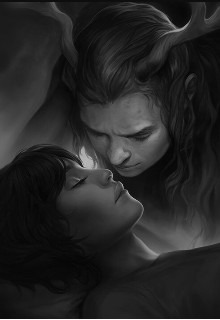E.C Tubb - Spectrum of a Forgotten Sun

Помощь проекту
Spectrum of a Forgotten Sun читать книгу онлайн
"He's got money on him. A wound in the guts and drugs are scattered around. My guess is that he was passed out easy."
"A comrade, eh?"
"Yes," said Dumarest. "And a good one. What happens now?"
The captain shrugged. "The engagement's over and you're among the vanquished. The orders were to kill all stragglers, but what the hell? You're worth more to us alive and you've earned your chance. Lorne, escort him to camp." He added, grimly, "And make sure that nothing happens to him on the way."
* * * * *
The room was like many others he had seen before. A bleak place with Spartan furnishings: a desk, a chair behind it, another facing it, set squarely on the floor and fitted with invisible electronic devices to winnow the truth from lies. A place designed to intimidate, holding nothing to distract the attention, as much a cell as the one in which he had been held since his surrender three days ago. Time which Dumarest had spent with the tireless patience of an animal knowing there was nothing else he could do.
Major Kan Lofoten was waiting for him. Like the room, he was the product of functional intent. Neatly uniformed in black and maroon, his face was a hard combination of lines and planes. His eyes, deep-set beneath slanting brows, were shrewdly direct. A man of middle-age, dark hair brushed back from a high forehead, his mouth thin and cruel. When he spoke his voice held an unexpected resonance, a depth of inflection which Dumarest guessed was as cultivated as his exterior.
"Be seated, my friend. Rest your hands on the arms of the chair. Relax, no harm will come to you. To business, but first my apologies for the delay. As you can imagine we have been busy." And then, without change of tone, he said, "You are Earl Dumarest. A mercenary attached to Haiten's Corps. Your first engagement?"
"Yes."
"You joined, where?"
"On Ragould." There was no point in lying and the man would already know the answer to the questions he asked. But he wanted more than bare answers. "I was desperate," added Dumarest. "I'd traveled Low and found no work available. The Corps was recruiting and it seemed a good idea to sign up. We left the next day and came to Hoghan. The rest you know."
"Perhaps." The Major moved some papers. "You have fought as a mercenary before?"
"No."
"But you have fought?"
"When I had to, yes."
Lofoten nodded and leaned back in his chair his eyes studying the figure before him. Tall, hard, the face edging on bleakness. A man who had learned early to rely on no one but himself. Stripped of armor and uniform he wore the clothes he had carried beneath, pants and tunic of dull, neutral grey, boots which rose to just below the knee. The tunic had a high collar and long sleeves falling to mid-thigh. One shoulder was scarred by the impact of a grazing bullet, the glint of protective metal showing beneath the tear. Only one thing was missing from his usual attire-the knife which now rested on the desk before the interrogator.
Lofoten picked it up, turning it so as to allow the light to glimmer along the blade. Nine inches of honed steel, the edge curved, the back sweeping down to form a needlepoint. The guard was scarred and the hilt worn. Striking it on the desk he listened to the clear note from the vibrating metal.
"A good knife," he said casually, "but an unusual weapon for a mercenary to carry. As unusual as the fact that you wore your own clothes beneath the armor. Why did you do that?"
"I didn't like what I was given."
"Cheap stuff, thin, tearing at a touch." Lofoten smiled, a brief nicker of the lips which revealed a flash of white teeth. "And your weapons the same, yes? How many veterans did your contingent hold? What rations did you carry? How were your logistics? How well were you officered?"
"Badly," said Dumarest and added, dryly, "as you must know."
"Yes, I know, as you must have realized by now, that Haiten's Corps was sacrificed. You had no hope of winning and there was no intention that you should. It was nothing more than a show. Sound and fury and some limited destruction, enough to awe the civilians and make them obedient to the new regime."
"A show," said Dumarest bitterly. "But some good men died."
"Of course-but dead men draw no pay." Lofoten was cynical. "And who ever claimed that the life of a mercenary was easy? You realize why I'm telling you this? Your Command has no interest in redeeming you. Unless you have money to buy your freedom you are ours to dispose of as we see fit. The penalty the vanquished must pay. Either you work off your debt by service in the Legion or we sell you as contract labor. You have money?"
"No."
"Of course not, else you would not have joined up with Haiten on-where did you join?"
"Ragould."
"And you arrived there from where?"
"Elmish."
"And before that?" Too many worlds scattered across the spread of the galaxy. Names which had become faded memories, the habitats of people who were now ghosts. A fact Lofoten sensed. "Never mind. Just tell me the world of your origin." He blinked at the answer. "Earth?"
"Earth."
"A most unusual name for a world." Lofoten glanced at the desk, at the tell-tales relaying their signals. "Earth? I've never heard of it, but no matter, I am more interested in your future than your past. Incidentally Captain Sigiua was most impressed by your conduct. He has agreed to take you under his command should you join us. The captain was the one who had you sent to camp."
"I remember," said Dumarest. "If I did join you for how long would it be?"
"Things are slow at the present. Your expenses would be high and your income small. Even with rapid promotion, and I think that could be promised, it would take several years to gain your freedom. Then, of course, you could remain as a free-lance. Many men have made a career in a mercenary band and you could be one of them. Atlmar's Legion is always in need of good men and the rewards could be high."
And death could come fast with the burn of a laser, the shocking impact of a bullet, the blast of explosives. Dumarest thought of Clar and how he had died-a small return for a decade of loyalty, but a man would be a fool to hope for more. A bigger fool to join an organization which traded in war and used harsh discipline to maintain its dominance over those wearing its colors. And yet had he any choice?
Leaning back Dumarest veiled his eyes and studied the bland face of the interrogator. It was a mask of tissue, tiny muscular reactions firmly controlled, the eyes like glass, the lips carved as if from stone. A proud face belonging to a proud man and once, perhaps, a sensitive one. An ambitious man, certainly, no other would have risen as high in the calling he had chosen to follow.
Lofoten's hands fell, toyed with the knife as, casually, he said, "A small matter which you can easily put at rest. You were crouched over the body of your comrade when discovered and were immediately fired on. Yet you escaped injury. How?"
"Luck," said Dumarest. "I heard the soldier and he fired without taking aim. The type of gun he was using throws up and to the right after the first shot."
"And so you moved down and to the left?" Lofoten shook his head. "No, my friend, I think there must be another explanation."
His hands moved on the knife and, without warning, he threw it from where he sat. An awkward position, but his aim was true and, spinning, the blade hurtled directly towards Dumarest. Lofoten drew in his breath as it slammed its point deep into the back of the chair, his eyes judging distance, the time allowed for intent to be recognised and evasive action taken. A normal man, anticipating the throw, would have barely been able to leave the chair. Dumarest stood three feet to one side of it, poised, watchful.
"Fast!" said Lofoten. "Never have I seen anyone move with such speed. As I suspected you possess an unusual attribute; the ability to evaluate a situation and take appropriate action on an instinctive level. And your reflexes are amazingly fast. No wonder the soldier missed. Well, that is one mystery solved. Now to another. Why did you join the Corps?"
"I've told you that."
"Yes, you said you were desperate," mused Lofoten. "But you could have earned money in the ring. Your speed and undoubted skill with a knife would have provided food and comfort. Not the need for money, then, but for some other reason. The desire to forget a woman? I doubt it. The urge to see new worlds? A remote possibility. The need to escape? Many seek sanctuary in a mercenary band. For a man hunted by assassins such a move could be wise."
Dumarest turned without comment and jerked the knife from the chair. For a moment he held it in his hand and then, as Lofoten made no objection, slipped it into his boot.
"Ragould is a small world with little shipping," said the major thoughtfully. "Which is why Haiten recruited there. On such worlds there are always restless young men eager to travel and careless as to the true cost of their passage. But you are no star-struck fool and must have known the risk involved. Yet for a man without money and with the desire to remain unnoticed, the opportunity would hold an attraction. A chance to disappear. One engagement and then, with pay and perhaps some loot, to move on to some other world. And, if any were following you, they would think you had died in the war."
The man was shrewd and had come too close to the truth for comfort Dumarest was uneasily conscious of the days he had been held, an unnecessary delay unless time had been needed for investigations to be made. And beneath the bland words was something else, the hint of knowledge owned but not displayed, hidden like the whip of a trainer after its initial display.
He said, flatly, "Have you decided?"
"On what is to be done with you?" Lofoten bared his teeth in a flickering smile. "You will, of course, be sold to the one who bids highest for your contract. A pity you have no money-I have the feeling that the bids will be high and the possibility of you ever being able to regain your freedom remote."
Not remote, impossible should he fall into the wrong hands. A fact the major was making clear even as he hinted at a way out.
"I don't like to see a man of your calibre wasted, but it is the system and the rules must be followed. Of course, if you could raise the money, then as one soldier to another, I would be pleased to accept it."
"Give me two days and I will raise the money," said Dumarest. "That is a promise."
"One which, unfortunately, I cannot accept. The regulations must be followed you understand." Lofoten frowned and picked up a paper from his desk and then, as if remembering something, let it fall. It had been in clear view for a moment only, but long enough for Dumarest to see the symbol stamped on the heading, the hatedly familiar Seal of the Cyclan.
"I was forgetting," said the major. "A small matter which could be a fortunate coincidence. I have an acquaintance, a woman who is in some slight difficulty. It could be that you may be able to help her. She, of course, could help you in turn. Will you give me your word that you will make no attempt to escape if I send you to her?" He added, casually, "You will, of course, be under guard."
An opportunity he couldn't refuse. Trapped, Dumarest knew that he had no real choice, but caution made him reluctant to appear too eager.
"This woman, who and what is she? What would be my duties?"
"That she will tell you."
"And my pay?"
"To leave Hoghan," said Lofoten. His voice, his face, were expressionless. "To escape a rather difficult situation. Surely that is reward enough?" Then, smiling, he added dryly, "But there could be more. The Lady Dephine is a most unusual person."


![Rick Page - Make Winning a Habit [с таблицами]](/uploads/posts/books/no-image.jpg)






















